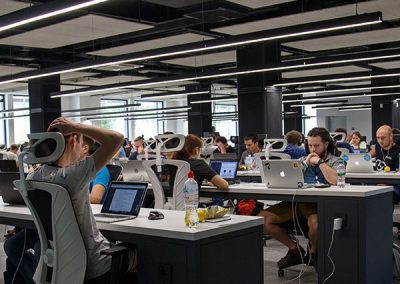Mobility of the Future
BACKGROUND
There is no doubt that the mobility sector will look significantly different within the next 5 years.
Technological advances enabling modern e-cars, ride-sharing and autonomous/augmented driving etc. are reshaping mobility services and individual transportation experiences.
By 2030 it is forecast that global mobility as a Service Revenues will exceed $1 Trillion.
CHALLENGES
These changes will challenge established business models and revenue streams for existing stakeholders as well as open up opportunities for new stakeholders within the mobility sector.
Current mobility providers such as car rental and car sharing organisations will need to redefine their role. New stakeholders, such as digital payment providers (e.g. WeChat Pay in China) and B2B payment platforms will become key players.
Furthermore, with e-mobility becoming mainstream, different charging mechanisms will need to be established that involve energy and infrastructure providers, payment service providers and the city and local councils.
As new technologies are deployed and increasingly adopted, they will disrupt established processes, value propositions and revenue streams. Emission and time-based charging of mobility services and car sharing are just some of the scenarios that need to be considered.
RESEARCH FOCUS
With this cluster we will analyse and discuss possible scenarios, options and challenges ahead. With a group of experts and leaders, we seek to define the mobility and payment value network and ecosystem, business models and enabling technologies. We will identify a possible strategy and action plan to position key stakeholders ahead of the competition.
- New Business Models in Mobility
- Process Improvement and Innovation
- Payment Paths
- Digital Technologies
DIGITAL HUB:
By offering start-up support in developing unique projects, with access to real customer data and collaborate with experts in the various sector we can increase the talent available and grow employment within the region.
Researchers:

Professor Markus Helfert

Dr Rehan Iftikhar




